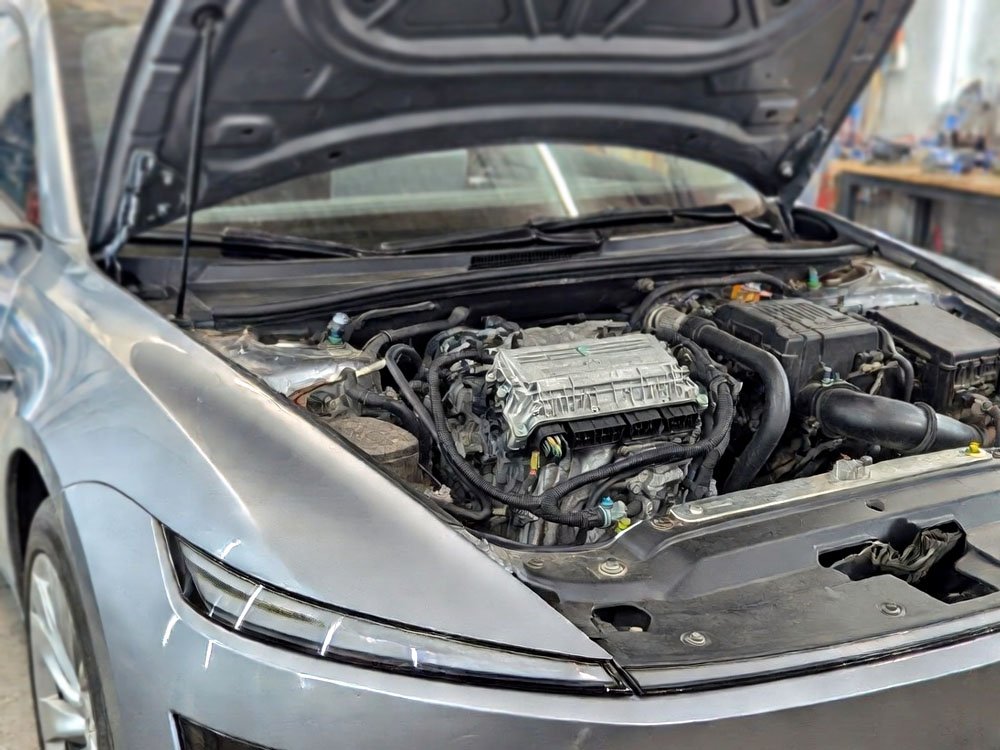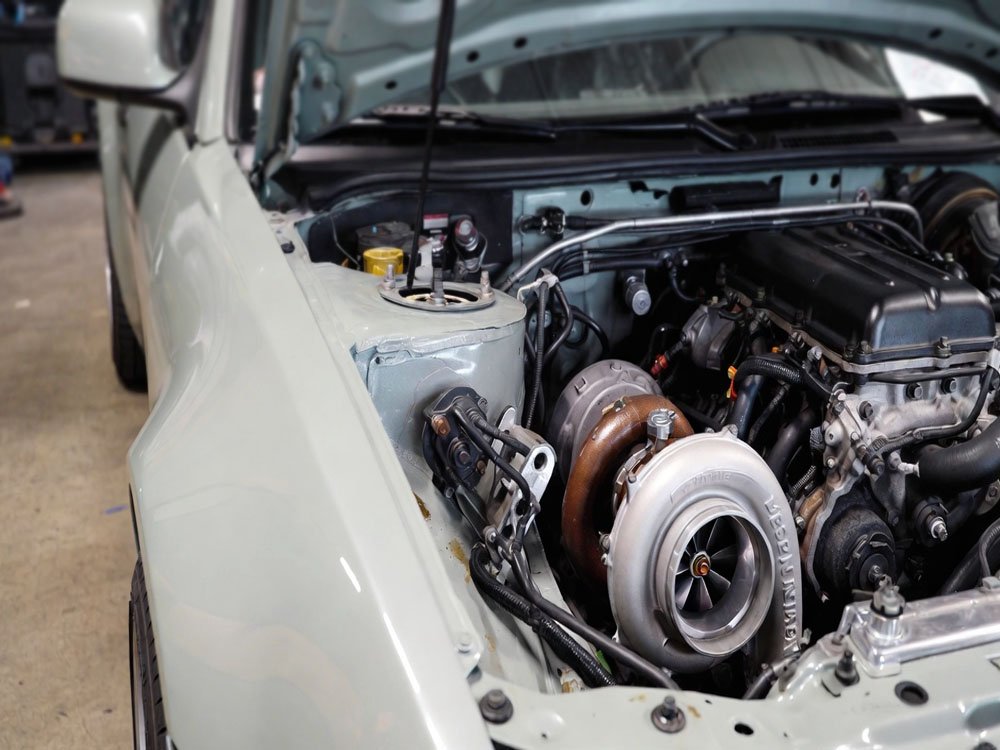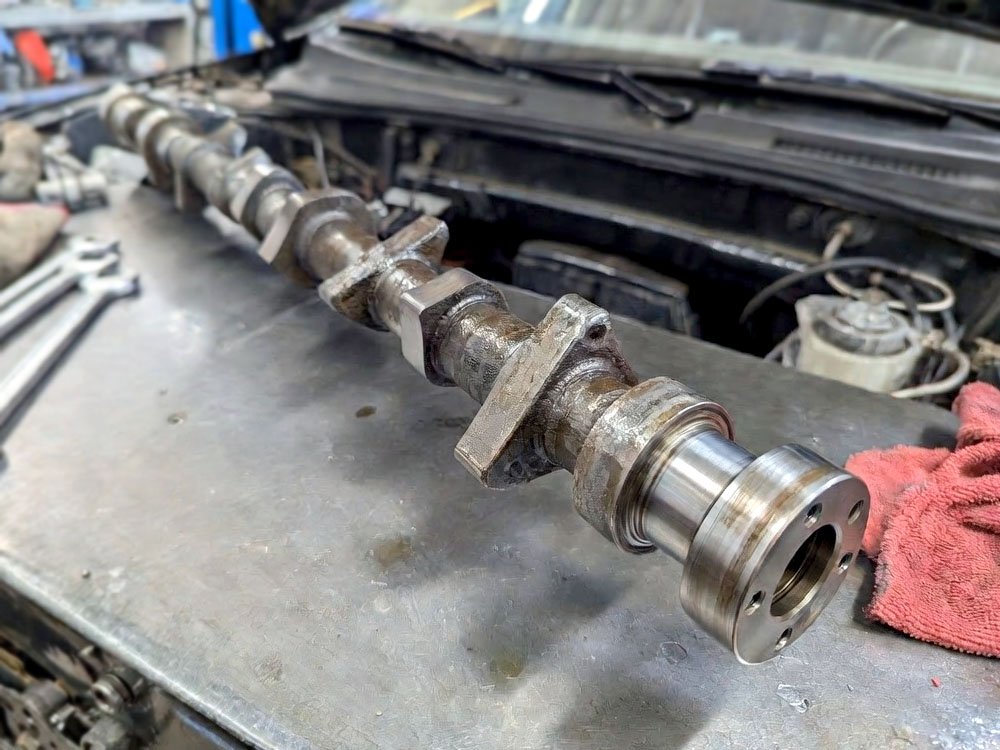Yes, tires on a new car are typically covered under the vehicle’s warranty. When you purchase a brand-new car, it’s natural for questions and concerns to arise regarding the coverage provided by its warranty.
One such common inquiry is whether the tires on a new car fall under the warranty. Tires are essential components of any vehicle and are prone to wear and tear over time. Therefore, it’s crucial to understand if their replacement or repair costs will be covered under the warranty.
We will shed light on whether a new car’s tires are included in its warranty, helping you make informed decisions about your vehicle’s maintenance and potential costs. So, let’s delve into the topic and unravel the extent of warranty coverage for the tires of a new car.
Credit: www.reddit.com
Types Of Warranties
When purchasing a new car, it’s essential to understand the types of warranties that come with it. These warranties can provide peace of mind and financial security in case of unexpected issues. Understanding the different types of warranties, such as the manufacturer’s warranty and extended warranty, can help you make informed decisions about protecting your investment.
Manufacturer’s Warranty
The manufacturer’s warranty, also known as the factory warranty, is provided by the car manufacturer and covers repairs or replacements of defective parts. This type of warranty typically lasts for a specific period, such as three years or 36,000 miles, whichever comes first. It often covers the tires as they are considered a part of the vehicle’s original equipment. However, it’s important to check the warranty details to ensure that tires are included in the coverage.
Extended Warranty
An extended warranty, also known as a service contract, is offered by the manufacturer or a third-party provider and extends the coverage beyond the manufacturer’s warranty period. It can provide additional protection for the tires and other components of the vehicle. Extended warranties can vary in coverage and duration, so it’s important to carefully review the terms and conditions to understand what is included in the coverage.
Coverage Details
When purchasing a new car, one important consideration is understanding what components are covered under the manufacturer’s warranty. Tires are a critical part of any vehicle, so it’s natural to wonder if they are included in the warranty. In this section, we will delve into the coverage details of a manufacturer’s warranty, highlighting what it typically covers and any exclusions you should be aware of.
What Does A Manufacturer’s Warranty Cover?
A manufacturer’s warranty is meant to protect consumers from defects in materials or workmanship that may occur during the vehicle’s assembly or production process. It provides peace of mind to car owners by offering repair or replacement services at no or minimal cost.
When it comes to tires, most manufacturer’s warranties do provide coverage, but it’s important to understand the specifics. Typically, a new car warranty will cover tire-related issues that are a result of manufacturing defects or faulty workmanship. This means that if your tires experience premature wear, tread separation, or other tire-related problems due to the fault of the manufacturer, you may be eligible for coverage.
| Important Note | It’s essential to thoroughly read and understand the details of the warranty contract.
However, it’s important to note that warranty coverage for tires usually has limitations. For instance, the warranty may only cover tires for a specific period or mileage, whichever comes first. This means that if your tires wear out or become damaged after exceeding the specified time or mileage threshold, they may no longer be covered by the warranty.
Exclusions From Warranty Coverage
While a manufacturer’s warranty provides valuable coverage, there are certain exclusions to be aware of. These exclusions typically include normal wear and tear, routine maintenance, improper use or installation, road hazard damage, and damage caused by accidents or collisions.
| Important Note | The details of exclusions can vary between different car manufacturers.
Normal wear and tear, such as tire tread wear or damage caused by road debris, is not usually covered by the warranty. Additionally, routine maintenance tasks like tire rotations, wheel alignment, and tire balancing may be considered the owner’s responsibility and are not covered. It’s crucial to follow the recommended maintenance schedule outlined in your owner’s manual to ensure optimal performance and longevity of your tires.
Improper use or installation, including overloading the vehicle or fitting the wrong tire size, may void the warranty. It’s essential to consult your owner’s manual or seek professional guidance to ensure that you are using the correct tires for your specific vehicle.
Lastly, accidents, collisions, and damage caused by road hazards such as potholes, nails, or debris on the road are typically not covered under the manufacturer’s warranty. These types of damages are considered external factors and are the responsibility of the driver to address separately.
In conclusion, while tires on a new car are often covered under the manufacturer’s warranty, it’s crucial to understand the details of the coverage and any exclusions that may apply. Checking your warranty documentation, adhering to recommended maintenance tasks, and driving responsibly can help you make the most of the warranty protection provided for your tires.
Tire Warranty
When purchasing a new car, it is essential to consider the warranty coverage provided, including the coverage for the tires. The tire warranty serves as an assurance from the manufacturer that the tires are free from defects and will provide satisfactory performance for a specific period of time. In this blog post, we will explore the details of the tire warranty and what it entails for new car owners.
Tire Manufacturer’s Warranty
The tire manufacturer’s warranty is an agreement between the tire manufacturer and the car owner, outlining the terms and conditions of tire coverage. It is important to note that the tire warranty may vary from one manufacturer to another, so it is crucial to carefully review the warranty documents for your specific brand of tires.
Typically, the tire manufacturer’s warranty covers defects in materials and workmanship. This means that if the tire fails due to manufacturing defects or errors, the manufacturer will replace or repair the tire at no additional cost to the car owner. It is essential to keep in mind that the warranty does not cover damages resulting from normal wear and tear, road hazards, punctures, or improper use of the tires.
Coverage Period For Tires
The coverage period for tires under the manufacturer’s warranty can vary depending on the brand and type of tires. It is common to see coverage periods ranging from 3 to 7 years from the date of purchase or a specified mileage limit, whichever comes first. Some manufacturers may also offer prorated warranties, where the coverage decreases over time or mileage.
To determine the exact coverage period for your tires, refer to the warranty documents provided by the manufacturer or consult with a representative from the tire dealership. It is crucial to understand the coverage period to ensure you can take advantage of the warranty if any issues arise with your tires within the specified timeframe.
Remember to take note of any specific requirements or conditions for maintaining the tire warranty, such as regular tire rotations, proper inflation, and alignment. Following the manufacturer’s guidelines for tire maintenance will not only help extend the life of your tires but also ensure you comply with the warranty terms and conditions.
Overall, the tire warranty is a valuable consideration when purchasing a new car. Understanding the coverage provided by the warranty and adhering to the maintenance requirements will help you make the most out of your tires and provide peace of mind knowing that you are protected against manufacturing defects.
New Car Tire Coverage
In this section, we will delve into the critical topic of whether the tires on a new car are covered under the manufacturer’s warranty. This can be a significant concern for new car owners, as tires are a vital component of a vehicle’s safety and performance.
Are Tires Covered Under The Manufacturer’s Warranty?
Yes, new car tires are typically covered under the manufacturer’s warranty. When you purchase a new car, the warranty commonly includes coverage for any defects or issues with the tires that arise due to manufacturing faults.
Exceptions To Tire Coverage
It is important to note that there may be some exceptions to tire coverage under the manufacturer’s warranty. For example, wear and tear from regular use, road hazards, punctures, or improper maintenance may not be covered. It is advisable to review the specific terms and conditions of the warranty to understand the full scope of tire coverage.
How To Claim Warranty
Understanding the warranty claim process is essential to make the most out of your coverage. Below, we detail the steps to follow when claiming warranty on your new car tires.
Understanding The Warranty Claim Process
- Contact the dealership or manufacturer to inquire about the tire warranty claim process.
- Provide the necessary documentation, such as proof of purchase and warranty information.
- Go through any specific procedures outlined by the warranty provider for claiming tire coverage.
- Follow up with the provider to track the progress of your claim and ensure timely resolution.
Documentation Required For Tire Warranty Claims
When making a tire warranty claim, it is crucial to have the following documentation ready:
| Documentation | Description |
|---|---|
| Proof of Purchase | Receipt or invoice showing the purchase of the new car with the specific tire model. |
| Warranty Information | Copy of the tire warranty details provided by the dealership or manufacturer. |
| Vehicle Information | Details of the vehicle, such as make, model, and VIN number, to verify eligibility for warranty coverage. |
Maintaining Warranty Coverage
Tires on a new car may or may not be covered under warranty, depending on the manufacturer’s policy. It’s essential for car owners to review their warranty coverage carefully to determine if tires are included.
Regular maintenance requirements are essential to uphold warranty coverage on your new car’s tires.Regular Maintenance Requirements:
- Tire rotation every 6,000 to 8,000 miles
- Proper tire inflation according to manufacturer guidelines
- Regular alignment checks to prevent uneven tread wear
Impact Of Improper Tire Maintenance On Warranty:
- Improper maintenance can void tire warranty
- Neglecting rotations or alignments may lead to warranty claims denial
Aftermarket Tires And Warranty
New car warranties generally cover factory-installed tires. However, aftermarket tires are not typically included in the warranty. It’s important to check the specific terms and conditions of your warranty to see whether the tires are covered.
Effect Of Aftermarket Tires On Warranty
When it comes to aftermarket tires and warranty, it’s crucial to understand the potential impact of installing non-OEM (Original Equipment Manufacturer) tires on a new car. Many drivers seek to upgrade their tires for improved performance or aesthetics, but doing so can raise concerns about how it may affect the vehicle’s warranty coverage.
Aftermarket tires refer to any tires that are not the same as those originally installed by the manufacturer. Some manufacturers have specific guidelines regarding aftermarket modifications, including tires, and deviating from these recommendations can potentially put the warranty coverage at risk.
Maintaining Warranty Coverage With Aftermarket Tires
In order to maintain warranty coverage when using aftermarket tires, it’s essential to adhere to the manufacturer’s specifications and guidelines. This may involve ensuring that the aftermarket tires meet certain criteria, such as size, load capacity, speed rating, and tread pattern, to maintain compatibility and safe performance.
It’s advisable to consult the vehicle’s owner’s manual or the manufacturer directly to confirm that the aftermarket tires being considered align with the warranty requirements. By being proactive in understanding these guidelines and complying with the manufacturer’s specifications, drivers can help safeguard their warranty coverage while enjoying the benefits of aftermarket tires.
Credit: www.reddit.com
Common Misconceptions
When purchasing a new car, there are often many assumptions and misconceptions regarding warranty coverage for different components of the vehicle. Tires are no exception to this confusion. Let’s take a closer look at some of the most common misconceptions about new car tire warranties and the clarifications you need to know.
Assumptions About New Car Tire Warranty
One of the primary assumptions car owners tend to make is that the tires on their new vehicle are automatically covered under warranty. While it’s true that new cars typically come with a comprehensive warranty package, not all tire issues fall under this coverage.
Another assumption is that tire damage caused by road hazards, such as potholes or nails, will always be covered under the new car warranty. Unfortunately, this is not always the case, as warranty coverage varies depending on the manufacturer and the specific warranty terms.
Clarifications On Warranty Coverage
It’s important to read and understand the fine print of the warranty provided by your car manufacturer. Not all tire-related issues fall under the new car warranty, and most manufacturers have specific guidelines for tire warranty coverage.
Generally, defects in materials or workmanship will be covered under the tire warranty, but damage caused by regular wear and tear, road hazards, or improper maintenance may not be included.
Here’s a table that summarizes the common clarifications on new car tire warranty coverage:
| Assumption | Clarification |
|---|---|
| New car tires are automatically covered under warranty. | Tire warranty coverage may vary depending on the manufacturer and warranty terms. |
| Tire damage caused by road hazards is always covered under warranty. | Warranty coverage for road hazard damage differs among manufacturers and warranty terms. |
| All tire issues are covered by the new car warranty. | Specific guidelines and exclusions exist within the tire warranty provided by the manufacturer. |
Understanding the limitations and inclusions in your new car tire warranty is crucial to avoid unexpected expenses. If you have any doubts or questions, it’s always advisable to reach out to your car manufacturer or refer to the warranty documentation for detailed information.
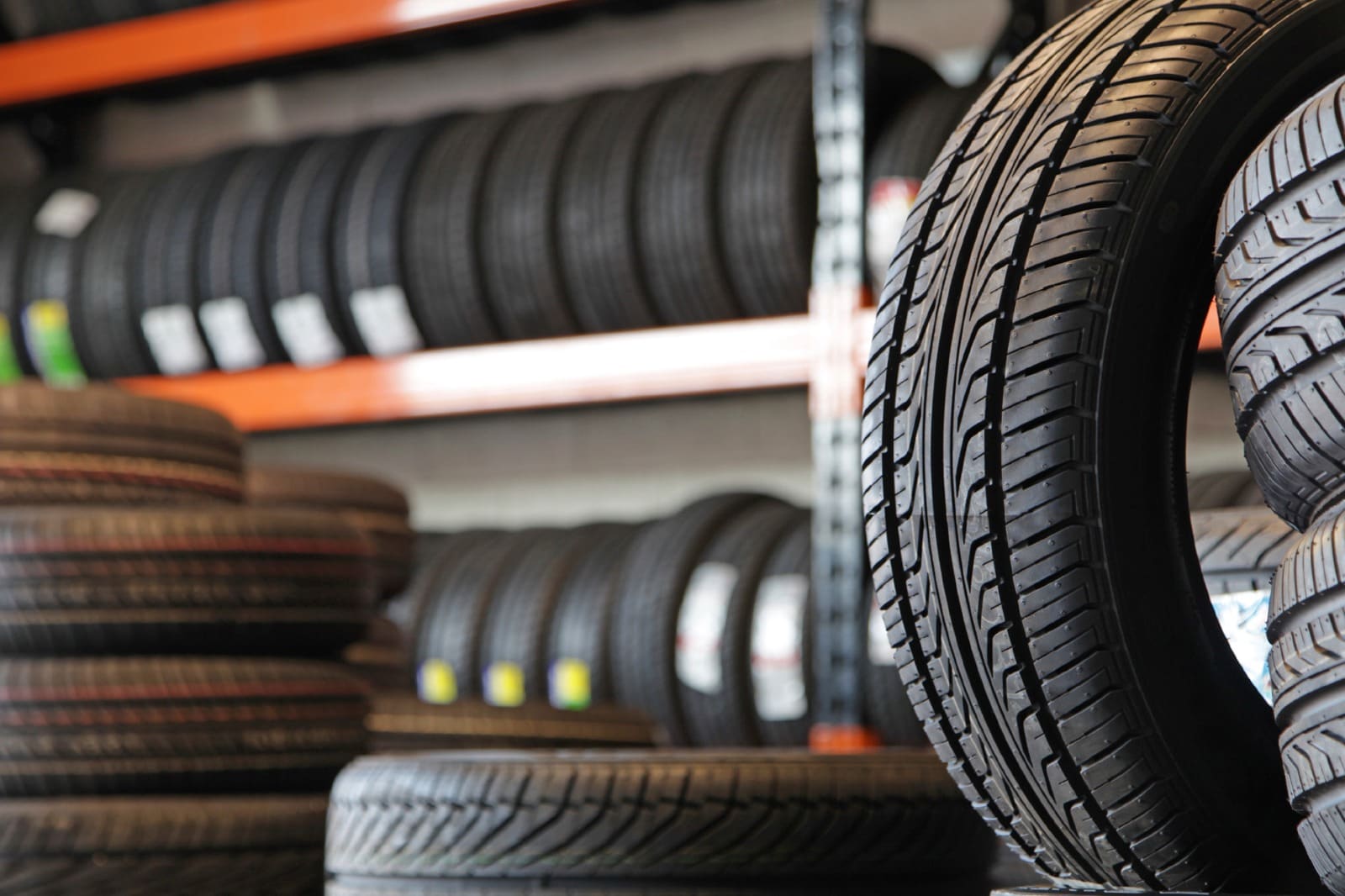
Credit: www.edmunds.com
Frequently Asked Questions For Are Tires On A New Car Covered Under Warranty?
How To Get Tires Covered Under Warranty?
To get tires covered under warranty, contact the manufacturer or retailer with proof of purchase. Explain the issue and provide necessary details for assessment.
Are Tyres Covered Under New Car Warranty?
Yes, tyres are typically not covered under a new car warranty. Check your warranty specifics for details.
What Are Two Items Typically Not Covered In A Car Warranty?
Car warranties typically do not cover wear and tear items, such as tires and brakes. They also may not cover maintenance services.
Are Nails In Tires Covered Under Warranty?
Nails in tires are not usually covered under warranty.
Conclusion
Understanding the warranty coverage for new car tires is essential for vehicle owners. The warranty details, including duration and specific coverage, should be thoroughly reviewed before making any assumptions. By being well-informed about the warranty terms, car owners can ensure that they are adequately protected in the event of tire issues.
